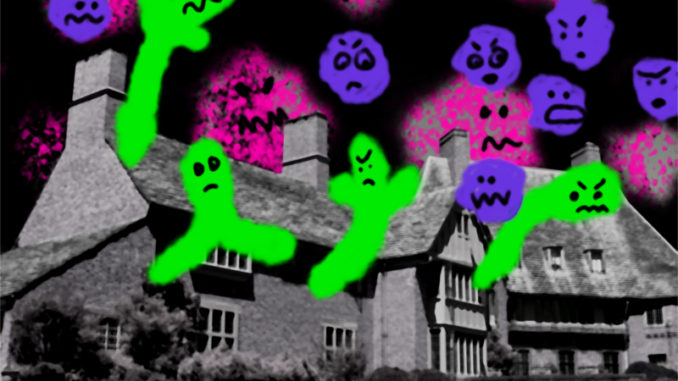
Whether it be tea detoxes on Instagram, charcoal toothpaste or the Atkins Diet, humans undoubtedly gravitate towards quackery; exactly what attracts us toward unconfirmed science at such a shocking rate remains a perplexingly disappointing mystery. While the followers of pseudoscience are fun to mock in theory, the ramifications of their actions carry unfortunate implications for the broader population. A particularly unsettling example of this statement can be found within our very own community: over the last several months, more than 70 people have contracted measles across Clark and Multnomah County, an otherwise preventable disease.
There is undeniable privilege in denying proven science. It takes a particularly pervasive level of self-righteousness to directly counter scientific facts. For example, those who deny climate change mock the millions of people throughout the world actively losing their lives and livelihoods to rising sea levels, increasing temperatures and heightened global pollution. Similarly, those who deny the effectiveness of vaccinations ignore the reality that millions of people throughout the world continue to die from preventable diseases; people are barred from accessing the vaccinations offered widely and cheaply in the United States simply due to their societal and geographical position. Those who deny the proven effectiveness of vaccinations and subsequently avoid becoming vaccinated themselves place others — specifically infants, the elderly, those restricted by medical conditions, and other immunodeficient people — in direct danger for no reason other than misguided personal opinions about otherwise proven facts.
Much of the contemporary debate surrounding the apparent dangers of vaccinations can be traced back to a now-discredited 1998 study alleging a direct connection between the MMR vaccine — which protects against measles, mumps and rubella — and autism among children. Shortly after initial publication, it was discovered that the research was entirely fraudulent and that the head researcher had been paid by two separate anti-vaccination research firms as part of a more than $3.4 million effort to discredit the efficacy of modern vaccinations.
The lasting implications of such fabricated research remain all too evident in our society today. Communities of anti-vaxxers, who couple pseudoscience with such fabricated research to substantiate their misguided opinions, exist throughout the world, directly inhibiting the effectiveness of vaccinations more broadly.
Before I proceed further, it is important to clearly delineate at whom this criticism is directed. The term “anti-vaxxers,” broadly construed, consists of those simply against medical vaccinations, regardless of the motive for disagreement. It would be entirely problematic to group all those opposed to vaccinations into one large population, for doing so overlooks the somewhat complex system of exemptions surrounding the vaccination process. My writing avoids blaming those with legally-identified religious exemptions, such as the Church of Christian Science or Jehovah’s Witnesses. While their beliefs and choices are no less harmful or misguided than any other anti-vaxxer, I am sympathetic toward the protections that religious groups receive within our Constitution and will support such protections vehemently. My writing concerns the perpetuation of what Oregon and many other states identify as those who claim “nonmedical exemptions.”
Very few on our campus would deny the existence of climate change. However, the same cannot be said about denying the efficacy of vaccinations. On four separate occasions during my time at Lewis & Clark, I have witnessed students directly challenge the merit of vaccinations and attempt to highlight the apparent side effects, autism included. These opinions struck me as particularly paradoxical, as the college requires a wide spectrum of vaccinations for any student enrolled. Yet, seemingly well-educated students simultaneously deny the effectiveness of proven science. Our very own student government recently passed a resolution attacking the anti-vaccination movement as both “harmful” and “fraudulent.” Though their words echo my own here, the unfortunate truth remains that some throughout our campus believe otherwise. The pervasiveness of falsified pseudoscience has indeed infected our own campus, and the potential ramifications could bring direct harm to LC.
The privilege of denying climate change is inherently the same privilege as denying the lifesaving power of vaccines — one rooted in the ability to overlook the suffering of others due to a lack of interference in one’s own privileged, self-centered existence. I need not further elaborate upon the hypocrisy in supporting the science behind proving climate change while simultaneously denying the ever-expanding literature attesting to the effectiveness of modern vaccines. Science is science. Facts are facts. Vaccinations do not cause autism.
Subscribe to the Mossy Log Newsletter
Stay up to date with the goings-on at Lewis & Clark! Get the top stories or your favorite section delivered to your inbox whenever we release a new issue.

Leave a Reply